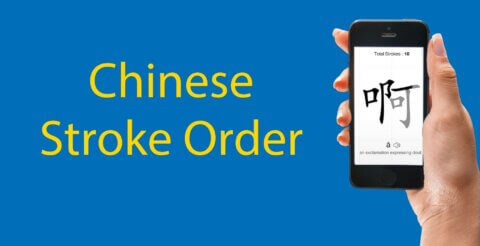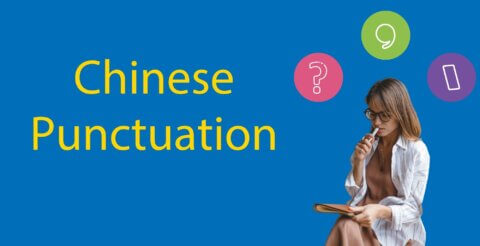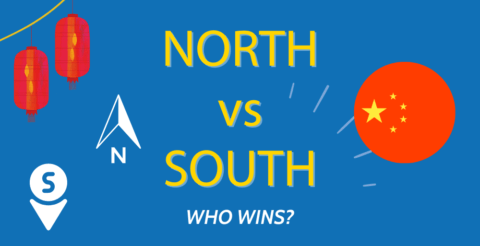Boost Your Mandarin Right Now || 10 New Ways to Say “I Understand”!
Do you know how to say ‘I understand’ in Chinese?

If you’ve learnt even a little bit of the language already, we’re willing to bet you do.
But we’re also guessing that you don’t know all the ways to say it.
Because believe it or not, there are many was to express different types of understanding in Chinese.
And the more Chinese you learn, the more you discover.
Confused? Worried? Thinking of giving up? Don’t!
Because in this post, we’ll look at some of the most common ways of saying I understand in Chinese – and how to use them.
Phrase #1 | 听得懂 Tīngdedǒng
Phrase #2 | 明白 Míngbái
Phrase #3 | 了解 Liǎojiě
Phrase #4 | 理解 Lǐjiě
Phrase #5 | 清楚 Qīngchǔ
Phrase #6 | 理会 Lǐhuì
Phrase #7 | 领会 Lǐnghuì
Phrase #8 | 谅解 Liàngjiě
Phrase #9 | 领略 Lǐnglüè
Phrase #10 | 会心 Huìxīn
I Understand in Chinese || BONUS Words
I Understand in Chinese || FAQs
#1 听得懂 Tīngdedǒng
If you haven’t already learnt 听得懂, it won’t be long before you do.
This foreigner favourite is likely to be one of the first phrases you learn when you start studying Chinese.
It’s an extremely useful phrase that can get you out of many an awkward situation when you have no idea what’s going on.
听得懂 follows the common Chinese sentence structure of verb + 得 + an outcome.

Let’s break that down:
- 听 means ‘to hear’
- 懂 means ‘to understand’
And 得 is a structural participle that comes after a verb to indicate possibility.
Too grammatical?
Take a look at the literal translation: ‘I hear and can understand’.
In other words, I understand.
So, what if you don’t understand?
Easy! You simply need to replace the 得 with 不 (no) to say ‘I don’t understand’: 听不懂.
You might have noticed that this phrase only refers to things you’ve heard, rather than read.
To say you don’t understand something you’ve read, you’ll need to switch out the verb 听 (listen) for 看 (look) to say 看得懂 or 看不懂.
These structures work in exactly the same way and convey the same level of understanding, which is either everything or nothing, depending on whether you’ve used 得 or 不.
Many Chinese learners use the phrase 听不懂 as a catch-all for saying “I don’t understand” without realising that it implies they don’t understand anything the speaker is saying at all – rather than not getting a word or concept.
This can bring a conversation to an abrupt halt or, in some cases, come across as a bit rude.
Psst… To avoid any other social faux pas, check out our ultimate guide to Losing Face in China
So, the key takeaway here is to only use 听不懂 when you really don’t understand anything that’s being said.
If you do get the gist of the conversation or want to soften your words, you can do so by adding 太 to say: 我听不太懂 (wǒ tīng bú tài dǒng).
#2 明白 Míngbái
This is another common way of saying ‘to understand’ that you’ll likely learn early on in your studies.
It literally means “to be able to understand or grasp something” and is formed of the following words:
- 明 meaning bright or clear
- 白 meaning white, plain or clear
明白 is a slightly more formal way of saying I understand than 听得懂, but it can be used in exactly the same contexts: to express a lack of understanding of a spoken or written message.
However, unlike 听不懂, 不明白 doesn’t imply a complete lack of understanding, and it doesn’t follow the 得/不 structure.
To say you do or don’t understand, you can simply say:
- 我明白
- 我不明白
Got it? Great.
Here’s where things get slightly more complicated. But don’t worry, we’ll make it as simple as possible.

8 Compliments You Will Get on Your Chinese (And What They Actually Mean)
Compliments in Chinese || 8 That You Need to Know Compliments in Chinese – Where do you stand? Once you’ve started taking your language learning from the classroom out into the real world, you’re bound to get comments from just…
#3 了解 Liǎojiě

了解 means to fully understand someone or something.
It’s often used in spoken Chinese to express a complete understanding of a situation, a concept, a subject or a person.
Its meaning is similar to the English expression, ‘Got it’. For example:
我了解情况 – I understand the situation.
You can also use this word to say that you understand a person.
FOR EXAMPLE || 我和她是好朋友,我很了解她 – we’re good friends, I really understand her.
To change this into the negative, you simply need to add a ‘不’ in front of the verb, 了解.
我才刚认识他,不太了解他 – I just met him, I don’t know him that well.
A lot of learners get tripped up by the difference between 了解 and our next character, 理解. Now we 了解 the meaning of 了解, let’s take a look at the next one…
#4 理解 Lǐjiě
Okay, so while 理解 sounds and looks very similar to the previous character, its meaning is significantly different.
理解 is used to express a deeper level of understanding than 了解 – one that stretches beyond superficial facts.
The first character, 理 is the same one found in 道理, meaning ‘logic’ or ‘sense’.
This offers a clue as to what the meaning of this character is: that you don’t just understand something – you understand the logic behind it.
So, while you can 了解 a person, you can’t 理解 them. But you could 理解 something they did. For example:
FOR EXAMPLE || 我理解她为什么要辞职 – I understand why she wants to resign.
This sentence implies that the speaker knows more about her deeper reason for wanting to resign than the simple fact that she wants to resign.
You can use 理解 in situations where you want to emphasise your understanding of a situation or when you want to show empathy.
Now, ready for the curveball?
Although the meanings are fundamentally quite different, you may come across sentences where both 理解 and 了解 are grammatically correct.
理解 or 了解?
There are some instances where the two characters are interchangeable.
我理解他辞职的原因 – I understand his reasons for quitting
我了解他为什么辞职了 – I get why he quit
As you can see, despite both sentences being grammatically correct, the meanings are slightly different depending on the character.
#5 清楚 Qīngchǔ
While 清楚 also means ‘to understand’, it emphasises that you’re clear on something.

You might hear it in a sentence like this:
Person A – 你听清楚了吗?
Person B – 听清楚了 / 听不清楚
This verb suggests that you have no trouble understanding something – you clearly get it.
Or, in its negative form, you don’t get something clearly.
You can use 清楚 to refer to situations, explanations or principles. Let’s look at some more examples:
我不清楚这个问题 – I’m not clear about this problem
我把问题搞清楚了 – I have a clear understanding of the problem
While you can use 清楚 in both spoken and written Chinese, it’s unlikely you’d use it in daily conversation to say that you don’t understand what someone is saying.
Just a quick heads up…
The words that follow are more advanced vocab that you won’t need to know until quite far long in your Chinese learning journey (level 7-9 on the new HSK syllabus).
We’ll cover them anyway because it’s always good to be prepared. But don’t worry about learning or using these verbs just yet.
#6 理会 Lǐhuì
理会 has a few meanings, one of which is ‘to understand’, it also has the implication of not caring about something.
It’s much more formal than the words we’ve already looked at, so while you might need to know it to pass an HSK exam or read a newspaper, you’re unlikely to use it in spoken Chinese.
Here are some examples:
这个词有点难理会 – this word is a little difficult to understand.
我说了半天,她也没有理会 – I spoke for a long time but she still didn’t care.
Have you ever had any communication mishaps in Chinese? Let us know your stories in the comments!
#7 领会 Lǐnghuì

领会 translates to ‘to grasp’ or ‘to comprehend’ in English.
It can be used to express an understanding of a concept or the deeper meaning of something – but not someone.
Again, as a higher-level word, it’s mostly used in more formal contexts or written Chinese.
Here are some examples:
我还没有领会你的意思 – I still haven’t grasped your meaning.
阅读课文,要仔细领会每句话的含义 – When reading a text, you have to carefully comprehend the meaning of each sentence.
#8 谅解 Liàngjiě
Quick question before we look at this next character…
Can you spot the pattern between some of these words?
If you’ve already started learning Chinese, you probably know that different words are formed from various combinations of the same characters.
So, once you’ve learnt a handful of them, it’s easier to guess what the meaning of a new one might be.
In this case, 解 is the same character used in 理解 and 了解, which on its own, means ‘solution’.
Here, it’s paired with 谅, meaning ‘to forgive’.
So, can you guess what 谅解 might mean?
Yep – to understand or, more accurately, to make allowances for.
You might use 谅解 to say:
我能谅解你有你的困难 – I understand you have difficulties.
谢谢你的谅解 – Thank you understanding.
#9 领略 Lǐnglüè
Stay with us – we’ve almost reached the end!
Second to last on our list is 领略, which loosely translates to an appreciation or an impression of.
You can use it to talk about things such as scenery, food or feelings in the same way you’d use it in English.
FOR EXAMPLE || 我终于领略到云南的美丽风景 – I finally appreciate the beautiful scenery of Yunnan.

Beijing vs Shanghai (2025) // Your Comprehensive & Complete Guide
Beijing vs Shanghai — they couldn’t be more similar, and they couldn’t be more different. But which one is for you? Find out first with our in-depth guide.
#10 会心 Huìxīn
And finally, we have 会心.
This translates to ‘knowing’ and can be used to refer to things like a knowing glance or a knowing smile.
You’re unlikely to use 会心 in a spoken context, but just in case you want to impress your Chinese friends, here are a couple of sentences you can try:
会心一笑 / 会心的微笑 – a knowing smile.
There you have it! 10 different ways to say I understand in Chinese.
We hope you can see that while these characters might all mean to understand, they have vastly different meanings.
Before we wrap up…
We mentioned earlier that characters combine to form other words that relate in some way to their meaning, and the characters we’ve looked at today are no different.
Here are some extra words that are formed using some of these characters. See the pattern?
误会 Wùhuì – misunderstanding
懂行 Dǒngháng – to know the ropes
解释 Jiěshì – to explain
解开 Jiěkāi – to solve
解析 Jiěxī – to analyze; examine
谅察 Liàng chá – a formal way of asking for forgiveness
Before we leave you we wanted to point you in the direction of our Chinese Grammar Bank.
We’ve got tonnes of useful content on there to help you level up your Chinese grammar skills in no time.
I Understand in Chinese || FAQs
What’s the best way to say “I understand” in Chinese?
That depends on the context.
To say you understand what you’re hearing, 听得懂 works great.
If you want to say ‘got it’, 了解 is probably more suitable. However, there’s a lot more options for different situations and we’d recommend going through the full article!
Will my Chinese sound better if I use the higher level translations of “I understand”?
Well again, that depends on context.
For example, if you’re writing an essay in Chinese, you’d probably want to use the more advanced forms of “I understand”. In daily life, just like in English, it will most likely sound more natural to use the more 口语 (colloquial) forms.
What’s the difference between 了解 and 理解?
了解 is closer to ‘got it’ in English, showing a general understanding of a situation or person.
On the other hand, 理解 expresses a deeper understanding of the logic or reason behind something. However, there are some situations in which both can be used.
Do you have any other grammar resources available?
Yes!
You can check out our Mandarin Grammar Bank for lessons in all things Chinese
Want more from LTL?
If you wish to hear more from LTL Mandarin School why not join our mailing list.
We give plenty of handy information on learning Chinese, useful apps to learn the language and everything going on at our LTL schools!
Sign up below and become part of our ever-growing community!
BONUS | Want to study the local dialect known as Shanghainese? We provide Shanghainese Classes in person and online.


 Hi, my name is Mojca. I am from Slovenia in Europe and I and I work as a student advisor at our Shanghai school.
Hi, my name is Mojca. I am from Slovenia in Europe and I and I work as a student advisor at our Shanghai school.





2 comments
Very useful thanks
Our pleasure 🙂